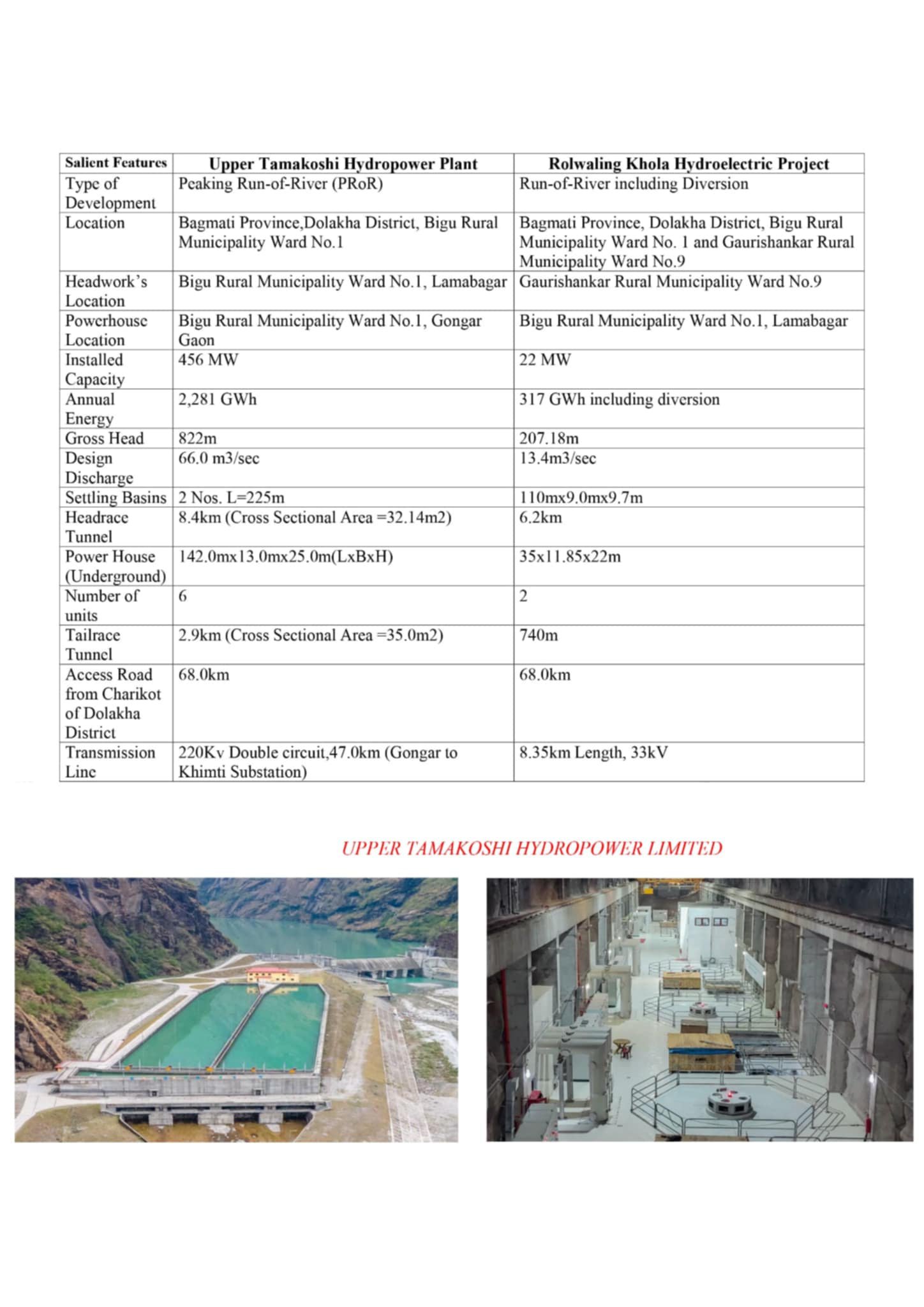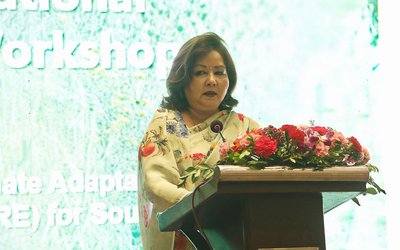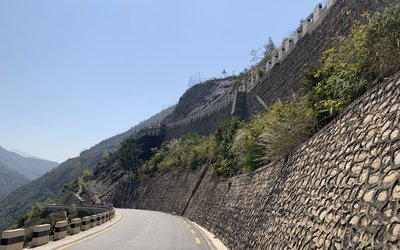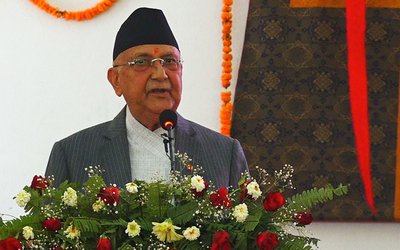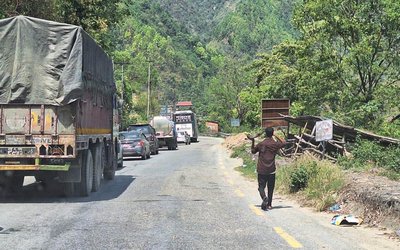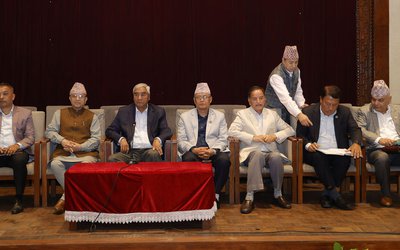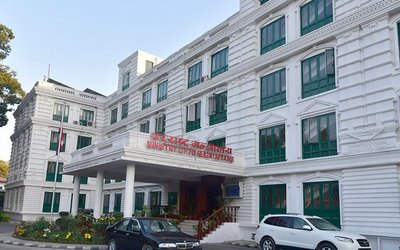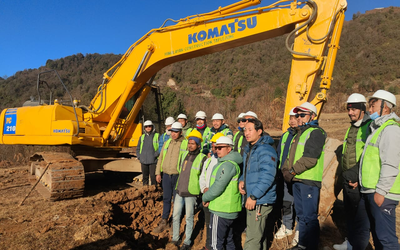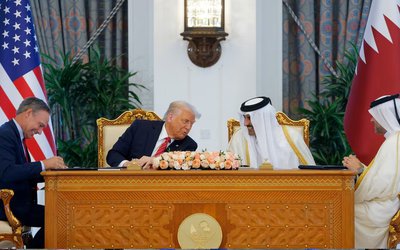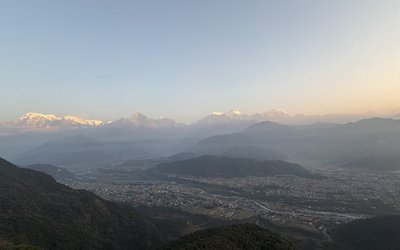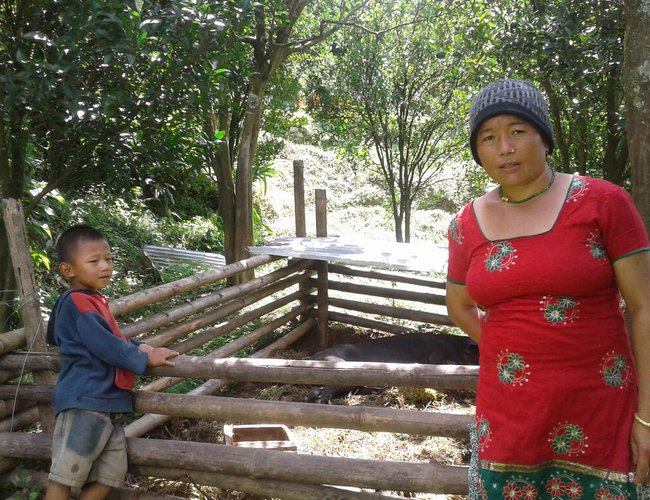
Indra Kumari Lawati, a model farmer from the Federal Democratic Republic of Nepal, is recognized for success in resilient farming in a remote region.
At least one person in every household of Indra Kumari Lawati’s remote village – situated more than twelve-hundred meters above sea level - has left town. Most of the young men have migrated for work in the Middle East and the rest are working or studying in the capital Kathmandu. For those that do go abroad, they do so with dreams of a better life.
According to a press release issued by FAO, but in Lawati’s view, this dream does not always come true. Her husband has been working as a laborers in the Middle East for 12 years but still cannot earn enough to support the family. Left alone in the highland, this mother of one has tried to make ends meet for her son and herself.
Born into a family of farmers, and with a strong will to take matters into her own hands, Lawati began cultivating the 1.3 hectares of land that her husband inherited. First, she grew chili as demand was high. But she strongly believed she could do more with the farmland.
Lawati reached out to agriculture officials in the district office, some eight hours away by car, to test the soil. Coupled with the cool climate in her village, the test results indicated that her soil was good for growing oranges, which were also in great demand in urban areas.
But, as we all know, success never comes easy. For three years the orange seedlings failed to grow. Never a quitter, Lawati moved forward with new ideas and added livestock. This she believed would make her small farm more economically and environmentally resilient.
It worked. Since then Lawati has pressed ahead with her integrated farming plans. She obtained a small loan from a cooperative, purchased more land, and finally grew those oranges, alongside dairy cows, goats and pigs.
She has expanded her knowledge through local training courses on animal husbandry and irrigation.
Today, Lawati is earning, on average, US$ 600 per month. She also employs nine local villagers and more than 200 others on a part-time basis. But most importantly, she has proven to her in-laws and neighbours, who were initially skeptical, that a mother, on her own, can manage integrated farmland in a remote area and earn a stable income for her family.
Lawati gives much credit to her father. When she was a young girl, he always encouraged her to do her best. Indeed she has. When asked if she would ever think about moving away from her remote homeland, she replies no – my identity is here. Indeed, where there’s a will there’s a way. This model farmer has proved that.
FAO’s annual Asia-Pacific World Food Day event honoured five model farmers from across the region. The five – four women and one man – came from Afghanistan, Indonesia, Japan, Nepal and Thailand. Each received a certificate of accomplishment from Her Royal Highness, on behalf of the FAO Regional Office for Asia and the Pacific.
On World Food Day, the future of migration and rural development is highlighted in the Asia-Pacific region
With more people on the move than in any other part of the world, the impact migration has on food security and rural livelihoods in the Asia-Pacific region is being closely examined during this year’s World Food Day.
Of the world’s 815 million hungry people, more than 60 percent, or some 490 million of them, live in this region. Escaping poverty, or just seeking greater livelihood options, millions are migrating within their own countries (for example to urban areas), or across borders.
Migration can take many forms – seasonal, temporary or even permanent – and it can be a positive move for many. But for others it is too often undertaken in desperation, due to conflict, natural disasters and climate change. People migrating in these circumstances are more vulnerable to increased food insecurity and worsening poverty.
A royal endorsement for zero hunger, safe migration and investment for rural development
In Asia and the Pacific, a regional World Food Day event illustrated this year’s theme “Change the future of migration. Invest in food security and rural development.”
The event’s Guest of Honour, UN FAO Special Ambassador for Zero Hunger in Asia and the Pacific, Her Royal Highness, Princess Maha Chakri Sirindhorn of Thailand, called for the region to recognize both the risks and opportunities associated with migration.
“This year’s World Food Day theme calls upon us to harness the potential of migration to support development and strengthen receiving and sending rural communities’ resilience. This will not happen automatically but as a result of concerted efforts and measures that maximize the positive outcomes of migration while minimizing the negative ones.”
“As FAO Special Ambassador for Zero Hunger, I strongly support FAO in its efforts toward helping governments and partners to invest in rural development and achieve sustainable agriculture systems,” Her Royal Highness added.
Building stronger rural economies will benefit all
The people who produce our food in Asia-Pacific are primarily smallholders, yet many of them are aging as the younger members of their families – particularly the young men – migrate in search of non-agricultural occupations. In many countries, this has resulted in women taking on all the roles in the household and on the farm.
“We need to rethink the way we farm. This will mean rethinking how we produce, what we produce, and the institutions within which we produce,” said keynote speaker, Bina Agarwal, Professor of Development Economics and Environment at the Global Development Institute, University of Manchester. “Today, we have an opportunity to tread an alternative path to agrarian change – one which is equitable and inclusive, ecologically sustainable, institutionally innovative, and attractive to women and youth. Cooperation, community, and conservation are the three key principles which will help us build this innovative and sustainable farming future.”
FAO calls for a wide-ranging response in Asia and the Pacific
“On this World Food Day, FAO joins with governments, civil society organizations, and millions of others to work together to make migration a choice and not a move of desperation or a relocation of last resort,” said Kundhavi Kadiresan, FAO Assistant Director-General and Regional Representative for Asia and the Pacific. “Working together to resolve conflicts, investing in rural development, enhancing social protection, adapting to and mitigating the effects of natural disasters and climate change – all of these things can help us respond to the negative effects of ill-prepared migration, while building a more food-secure and resilient Asia-Pacific for us all.”
- INDIA PAKISTAN CONFLICT: Nepal’s Security Challenges
- May 14, 2025
- ADB: Nepal To Grow By 4.4 Percent
- May 02, 2025
- UML POLITCIS: Oli Vs Bhandari
- Apr 29, 2025
- FORMER KING GYANENDRA: Bating Constituional Monarchy
- Apr 28, 2025
- NC-UML COALITION: In Turmoil
- Apr 27, 2025
